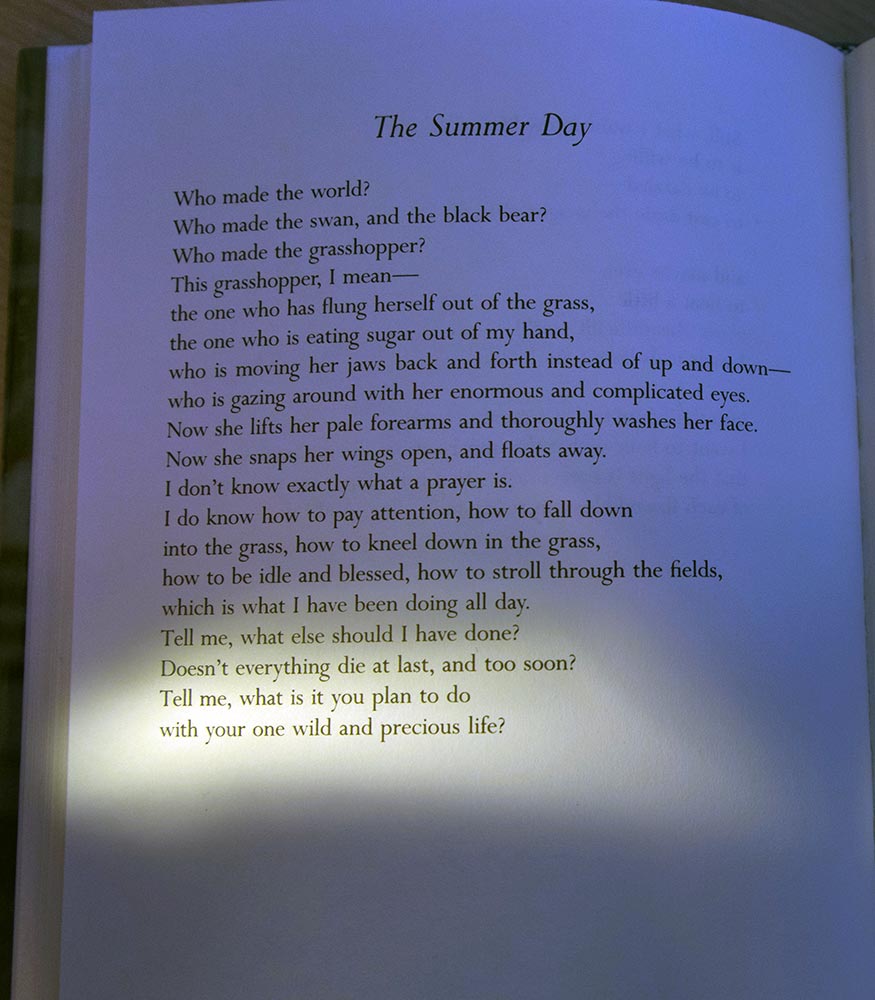On January 17 of this year we lost a saint. At least that is how we refer to her in my little Presbyterian congregation in Tacoma. Saint Mary Oliver died in body but her spirit and poetry continue to speak.
Mary Oliver’s words are as common in our community as the scriptures themselves. Her “Instructions for Living a Life” are the armature of our liturgy.
Pay attention. Be astonished. Tell about it.
These same words have formed my own personal liturgy.
For almost two decades they were posted above my desk or on the first page of my journal. Her words were painted on an exterior door that leads from my back yard to the alley. A reminder to me every time I crossed that threshold that my work is loving the world. Her words dancing just above the heads of my children as they played and laughed and discovered their place in the family of things.
The meaning of the word liturgy is “the work of the people.” Often we understand this as the communal response and activities that help us establish a relationship with the divine. But, Saint Mary taught me about another liturgy that deepened my relationship to myself and all that is alive in our world. She taught me about a relationship where I found little distinction between the divine and the human — where I found the divine most concretely alive in humanity and the physical world.
Mary Oliver helped us see that our deepest vocation is not contained in jobs, titles, or skills. She helped us see the path to answering this question: Tell me what is it you plan to do with your one wild and precious life?
Her invitation is to hone three practices in our life. Pay attention. Be astonished. And tell about it.
The Wild Hope Center for Vocation takes it’s name from the Mary Oliver poem, “The Summer Day.”


